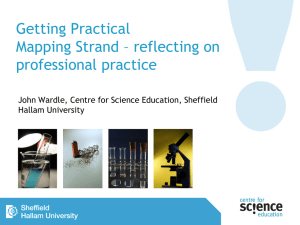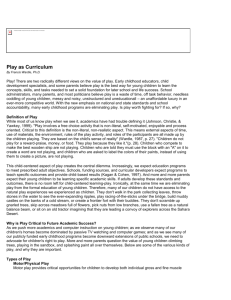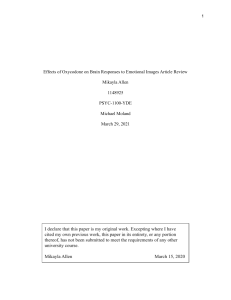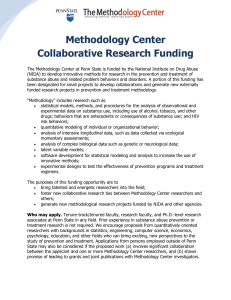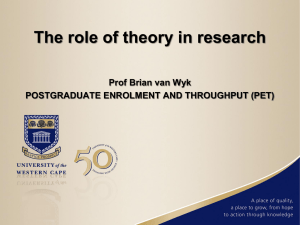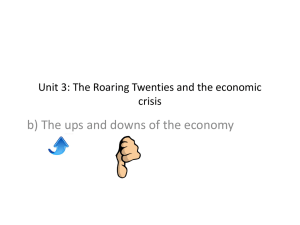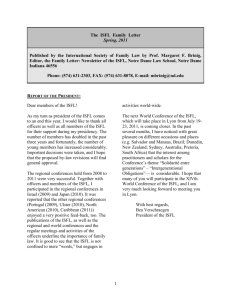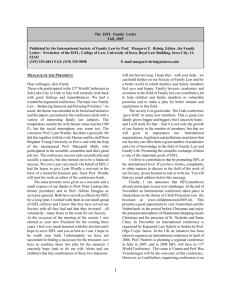Not Writing About Writing - Grassroots Writing Research
advertisement
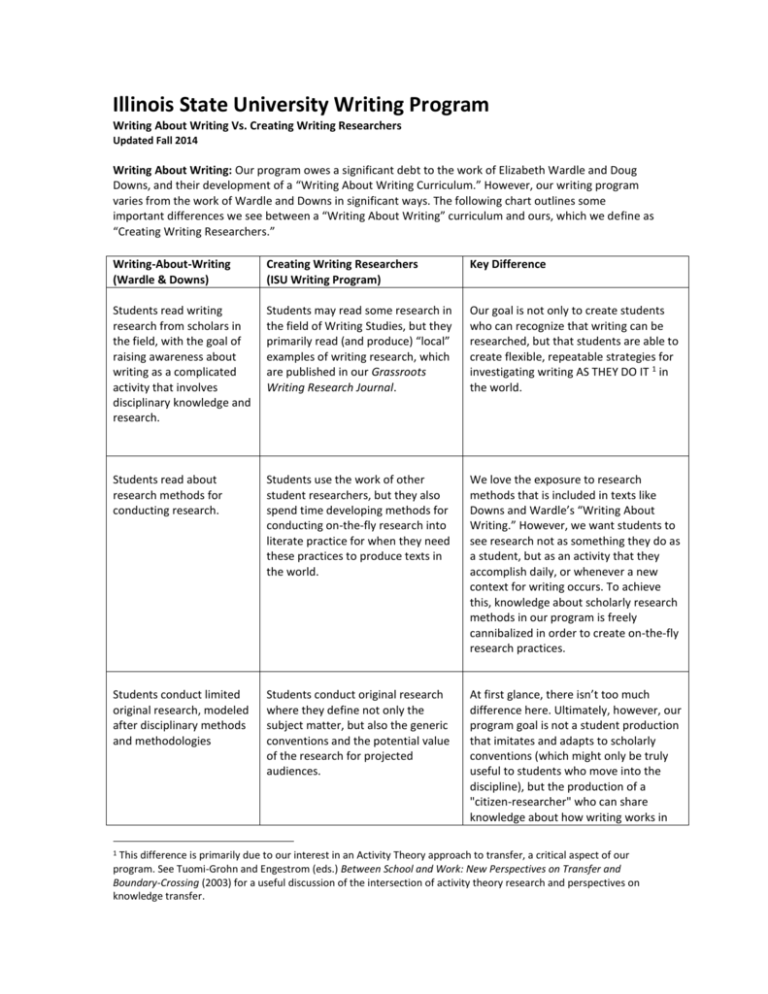
Illinois State University Writing Program Writing About Writing Vs. Creating Writing Researchers Updated Fall 2014 Writing About Writing: Our program owes a significant debt to the work of Elizabeth Wardle and Doug Downs, and their development of a “Writing About Writing Curriculum.” However, our writing program varies from the work of Wardle and Downs in significant ways. The following chart outlines some important differences we see between a “Writing About Writing” curriculum and ours, which we define as “Creating Writing Researchers.” Writing-About-Writing (Wardle & Downs) Creating Writing Researchers (ISU Writing Program) Key Difference Students read writing research from scholars in the field, with the goal of raising awareness about writing as a complicated activity that involves disciplinary knowledge and research. Students may read some research in the field of Writing Studies, but they primarily read (and produce) “local” examples of writing research, which are published in our Grassroots Writing Research Journal. Our goal is not only to create students who can recognize that writing can be researched, but that students are able to create flexible, repeatable strategies for investigating writing AS THEY DO IT 1 in the world. Students read about research methods for conducting research. Students use the work of other student researchers, but they also spend time developing methods for conducting on-the-fly research into literate practice for when they need these practices to produce texts in the world. We love the exposure to research methods that is included in texts like Downs and Wardle’s “Writing About Writing.” However, we want students to see research not as something they do as a student, but as an activity that they accomplish daily, or whenever a new context for writing occurs. To achieve this, knowledge about scholarly research methods in our program is freely cannibalized in order to create on-the-fly research practices. Students conduct limited original research, modeled after disciplinary methods and methodologies Students conduct original research where they define not only the subject matter, but also the generic conventions and the potential value of the research for projected audiences. At first glance, there isn’t too much difference here. Ultimately, however, our program goal is not a student production that imitates and adapts to scholarly conventions (which might only be truly useful to students who move into the discipline), but the production of a "citizen-researcher" who can share knowledge about how writing works in 1 This difference is primarily due to our interest in an Activity Theory approach to transfer, a critical aspect of our program. See Tuomi-Grohn and Engestrom (eds.) Between School and Work: New Perspectives on Transfer and Boundary-Crossing (2003) for a useful discussion of the intersection of activity theory research and perspectives on knowledge transfer. the world while also working to build and maintain flexible knowledge structures he she can use in real world writing situations. Overall, the key difference between our program and a Writing About Writing approach is that in WAW, students are introduced to a scholarly field and taught that they should have an interest in and awareness of the complexity of writing. As Downs and Wardle note, “Taking the research community of writing studies as our example not only allows writing instructors to bring their own expertise to the course, but also heightens students’ awareness that writing itself is a subject of scholarly inquiry. Students leave the course with increased awareness of writing studies as a discipline, as well as a new outlook on writing as a researchable activity rather than a mysterious talent” (559). Essentially, the WAW course is seen as a way of applying “writing studies” content to a class that is about academic reading and writing. In our program, students are immersed in “writing research” as daily, lived experience, and are taught to identify situations in which their thinking and research skills can be used productively. Our goal is to equip writers with specific kinds of research skills and ways of thinking about literate activity that will allow them to create personalized research plans for investigating their own writing practices and productions. One potential outcome (we hope) of this focus is that these skills and ways of thinking, applied appropriately, have the potential to both aid knowledge transfer (moving knowledge about writing more adaptively between different situations) and to create a more positive disposition towards adaptation as a key writing strategy. Thus, our program’s focus on “Creating Writing Researchers” is a critical difference that separates us both ideologically and pedagogically from the “Writing About Writing” approach. And not only does it lead to these fundamental differences in curriculum, we have found that it impacts our attitudes about and practices of assessment in fundamental ways as well. The next section of this application document outlines two specific sets of activities related to the differences in approach between “Creating Writing Researchers” and “Writing About Writing.”
